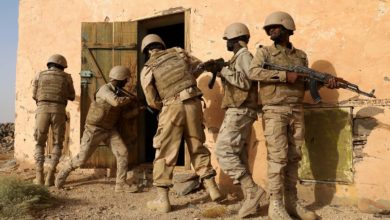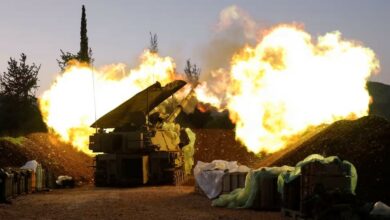The United Nations Security Council on Wednesday, October 30 renewed the mandate of its MINURSO mission in Western Sahara amid “frustration” on the part of the Polisario Front, which wants independence for the disputed region.
The resolution extending the mission for a year was drafted by the United States and received 13 votes in favor with abstentions by Russia and South Africa.
“We regret that the council has unfortunately returned to business as usual,” Sidi Omar, the Polisario Front’s representative at the U.N., told journalists prior to the vote.
“We deeply regret that we have lost the momentum that was created over the past 18 months,” Omar added.
After a long break, the U.N.-led dialogue between Morocco, the Polisario Front, Algeria and Mauritania resumed in Switzerland in December 2018, followed by a second round in March of this year, but no breakthrough was made.
There is also no longer a U.N. envoy for Western Sahara since the resignation in May of the last one, former German president Horst Kohler.
After Wednesday’s vote, the U.S. called for the appointment of a new envoy “as soon as possible.”
Omar also urged the secretary-general to make the appointment, saying Morocco had “already put on the table a set of pre-conditions which have limited the scope of possible candidates.”
“Our people have almost lost all faith in this process,” Omar said, adding that the Polisario Front would decide by the end of December whether or not to continue its involvement in the negotiations, and suggesting that there was a risk of the conflict resuming.
Morocco annexed Western Sahara, a former Spanish colony, and fought a war with the Algeria-backed Polisario Front from 1975 to 1991, when a ceasefire deal was agreed.

The United Nations Mission for the Referendum in Western Sahara (MINURSO) was deployed to monitor the truce and prepare a referendum on Western Sahara’s independence from Morocco, but it never materialized.
In August, MINURSO had a total of 486 personnel deployed, including 19 troops. Its annual budget is around $60 million.
Wednesday’s U.N. resolution does not differ from previous versions except that the term of renewal is a year instead of six months.
That change is due to the absence of the U.N. envoy, a U.S. official told AFP, adding that time was needed for an appointment and to relaunch the political process.
In 2018, against the advice of France and Morocco, Washington opposed a six-month term of renewal for MINURSO in a bid to pressure all sides, with then-national security advisor John Bolton even threatening to abolish the U.N. mission.
With reporting from AFP












